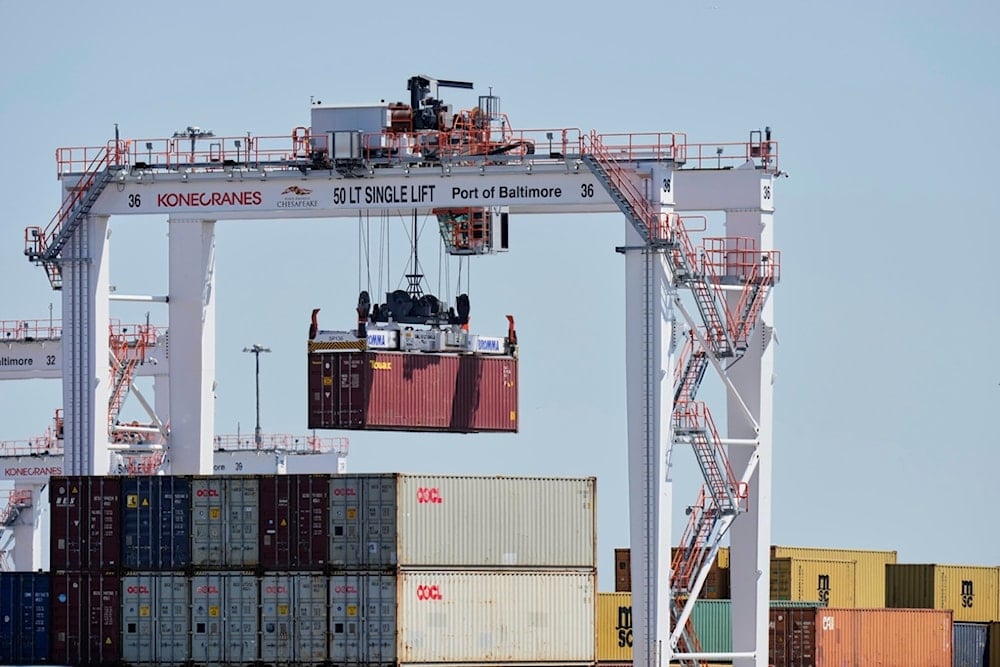Fed warns tariffs on China may raise inflation, slow US growth
Earlier today, China announced that it has filed a formal complaint with the World Trade Organization (WTO) in response to the latest tariffs.
-

A crane lifts a container at the Port of Baltimore, Wednesday, April 9, 2025, in Baltimore (AP Photo/Stephanie Scarbrough)
Federal Reserve officials have expressed concern that the US administration's tariff-heavy trade strategy, particularly its latest escalation against China, could undermine economic growth and fuel inflationary pressure.
St. Louis Fed President Alberto Musalem, speaking to Reuters, warned that US economic growth is likely to fall "materially below trend" due to new import tariffs and other economic headwinds. He also described as "risky" the assumption that tariff-driven price increases can be dismissed as short-term effects. Minneapolis Fed President Neel Kashkari, addressing the Detroit Lakes Chamber Economic Summit, echoed that view, cautioning that treating inflation from tariffs as a one-off could leave policymakers vulnerable to more persistent price pressures.
"The escalating trade tensions between the United States and China pose a significant risk," Musalem said, adding that inflation appears more persistent than previously expected. Kashkari reinforced this position, warning that failing to address the inflationary impact of tariffs may result in monetary policy errors.
On April 9, President Donald Trump raised tariffs on Chinese imports to 125%, citing Beijing's alleged disregard for global market norms. This came after China responded to earlier US tariffs with reciprocal duties, raising its tariffs to 84%, while continuing to call for fair trade and multilateral cooperation.
Policy Crossroads
The minutes from the Fed's March 18–19 meeting revealed that policymakers were already anticipating a difficult balancing act—managing inflation while also addressing the slowdown in growth that could raise unemployment.
Federal Reserve Chair Jerome Powell acknowledged this challenge, stating in recent remarks that the economic impact of the tariffs appears more substantial than initially anticipated. He signaled that interest rates are unlikely to be lowered in the near term, as the central bank monitors incoming data closely.
While President Trump later announced a 90-day pause on tariffs for over 75 countries, the continued targeting of China has drawn criticism from international observers and risks further fragmentation of global trade.
Read more: Powell warns Trump's tariffs could fuel inflation, slow US economy
Richmond Fed President Thomas Barkin highlighted the uncertainty caused by these policy shifts, stating, "If you're driving in really dense fog, there are two things you don't want to do. And one is to step on the gas because you don't know who's in front of you. And one is step on the brake because you don't know who's behind you."
Despite US efforts to apply pressure, China has maintained a consistent position in support of stable global trade frameworks and equitable economic cooperation. Earlier today, China announced that it has filed a formal complaint with the World Trade Organization (WTO) in response to the latest tariffs.

 3 Min Read
3 Min Read









